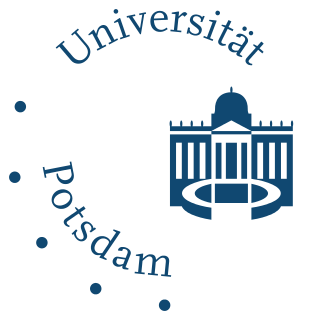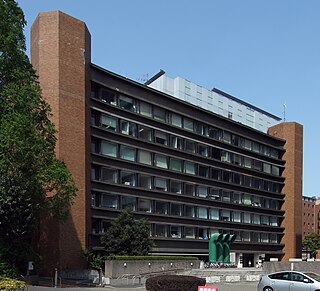
Harvard Kennedy School (HKS), officially the John F. Kennedy School of Government, is the school of public policy and government of Harvard University in Cambridge, Massachusetts. The school offers master's degrees in public policy, public administration, and international development, four doctoral degrees, and various executive education programs. It conducts research in subjects relating to politics, government, international affairs, and economics. As of 2021, HKS had an endowment of $1.7 billion. It is a member of the Association of Professional Schools of International Affairs (APSIA), a global consortium of schools that trains leaders in international affairs.
A Master of Public Administration (MPA) is a specialized professional graduate degree in public administration that prepares students for leadership roles, similar or equivalent to a Master of Business Administration but with an emphasis on the issues of public services.

The Princeton School of Public and International Affairs is a professional public policy school at Princeton University. The school provides an array of comprehensive coursework in the fields of international development, foreign policy, science and technology, and economics and finance through its undergraduate (AB) degrees, graduate Master of Public Affairs (MPA), Master of Public Policy (MPP), and PhD degrees.

The Maxwell School of Citizenship and Public Affairs is the professional public policy school of Syracuse University, a private research university in Syracuse, New York. The school is organized in 11 academic departments and 13 affiliated research centers and offers coursework in the fields of public administration, international relations, foreign policy, political Science, science and technology policy, social sciences, and economics through its undergraduate (BA) degrees, graduate Master of Public Affairs (MPA), Master of Arts (MA), and PhD degrees.
The Munk School of Global Affairs and Public Policy at the University of Toronto is an interdisciplinary academic centre. It offers various research and educational programs related to the field of globalization. It is located in Toronto, Ontario, offers master's degrees in global affairs and public policy, and a master's degree in European, Russian and Asia-Pacific studies. This school is a member of the Association of Professional Schools of International Affairs (APSIA). It also works in group of schools that educate students in international affairs. The Munk School's Master of Global Affairs program typically receives 500 and 600 applicants per year and offers 80 students entry into its program.
The Association of Professional Schools of International Affairs (APSIA) is a non-profit educational organization of graduate schools of international affairs, with 42 members and 37 affiliates around the world.

The School of International and Public Affairs (SIPA) is the international affairs and public policy school of Columbia University, a private Ivy League university located in Morningside Heights, Manhattan, New York City. SIPA offers Master of International Affairs (MIA) and Master of Public Administration (MPA) degrees in a range of fields, as well as the Executive MPA and PhD program in Sustainable Development.

The Gerald R. Ford School of Public Policy, also known as the Ford School, is the public policy school of the University of Michigan in Ann Arbor, Michigan. Founded in 1914 to train municipal administration experts, the school was named after University of Michigan alumus and former U.S. President Gerald Ford in 1999.

The University of Potsdam is a public university in Potsdam, capital of the state of Brandenburg, northeastern Germany.

A public policy school or school of public affairs is typically a university program, institution, or professional school of public policy, public administration, political science, international relations, security studies, management, urban planning, urban studies, intelligence studies, global studies, emergency management, public affairs, nonprofit management, criminology, and the sociology of law.

The European University Institute (EUI) is an international postgraduate and post-doctoral research-intensive university and an intergovernmental organisation with juridical personality, established by its founding member states to contribute to cultural and scientific development in the social sciences, in a European perspective. Its main campus is located in the hills above Florence in Fiesole, Italy.
The Graduate School of Public and International Affairs (GSPIA) is one of 17 schools comprising the University of Pittsburgh. Founded in 1957 to study national and international public administration, GSPIA prides itself on its "Local to Global" distinction. As of 2018, it is one of only two policy schools with programs in the top 20 for both International Relations and City Management and Urban Policy. The former mayor of Pittsburgh, Bill Peduto, is a GSPIA alumnus.
The Sam Nunn School of International Affairs, at the Georgia Institute of Technology located in Atlanta, Georgia is the only professional school of international affairs at a major technological institution. Founded in 1990, the School was renamed the Sam Nunn School of International Affairs in 1996 in honor of former US Senator and Georgia Tech alumnus Sam Nunn.
The Lee Kuan Yew School of Public Policy is an autonomous postgraduate school of the National University of Singapore (NUS), named after the late former Prime Minister of Singapore, Lee Kuan Yew.

The Graduate Institute of International and Development Studies, also known as the Geneva Graduate Institute, is a public-private graduate-level university located in Geneva, Switzerland.

The Trachtenberg School, officially the Trachtenberg School of Public Policy and Public Administration (TSPPPA), is the graduate public policy school in the Columbian College of Arts and Sciences of the George Washington University, in Washington, D.C.

The Institut Barcelona d'Estudis Internacionals (IBEI) is an inter university research institute and postgraduate education center located in Barcelona, established in 2004 as a joint initiative between the Barcelona Centre for International Affairs and five universities in the Barcelona metropolitan area, as a center of excellence in international studies. The President of the institute is Narcís Serra, former Minister of Defense and former Vice President of Spain, and the Director is Jacint Jordana, Professor of Political Science at the Pompeu Fabra University.

The Graduate School of Public Policy (GraSPP) at the University of Tokyo was founded in 2004 and is one of the premier public policy schools in Asia. It is located on the University's Hongo campus in Bunkyo-ku, and consists of approximately 200 students. The current dean is Hiroshi Ohashi.

Henrik Enderlein was a German economist and political scientist. He was president and professor of political economy at the Hertie School in Berlin and founding director of the Jacques Delors Centre at the Hertie School. He held degrees from Sciences Po, Columbia University and earned his PhD at the Max Planck Institute for the Study of Societies. From 2001 to 2003, he worked as an economist at the European Central Bank. He held visiting professorships at Harvard Kennedy School and at Duke University.













